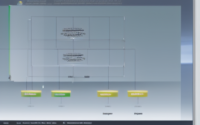PC Overheating and Cooling Solutions
PC Overheating and Cooling Solutions
Introduction
With the increasing demand for performance, modern computers are prone to overheating. This can lead to significant damage to the hardware components, decreased performance, and even system crashes. However, there are several effective cooling solutions available to prevent overheating and maintain your PC’s optimal performance. In this article, we will explore the common causes of PC overheating and provide practical cooling solutions to keep your device running smoothly.
Causes of PC Overheating
Before diving into cooling solutions, it’s essential to understand the common causes of PC overheating. Here are some factors to consider:
1. Poor airflow: Inadequate airflow within the PC case can be a major contributor to overheating. This can be caused by dust accumulation, cluttered cables obstructing fans, or improperly positioned fans.
2. Overclocking: Overclocking is the process of increasing the clock rate of your CPU or GPU to boost performance. While it can provide a performance boost, it also generates additional heat, thus increasing the risk of overheating.
3. Insufficient thermal paste: Thermal paste is a compound applied between the CPU/GPU and the heat sink to enhance heat transfer. If insufficient or low-quality thermal paste is applied, it can create a barrier to heat dissipation.
4. Inadequate cooling system: Some PCs come with inadequate stock cooling systems that are not sufficient for handling high-performance tasks. This can result in increased temperatures and eventual overheating.
Cooling Solutions
Now that we understand the common causes of PC overheating let’s explore some effective cooling solutions to keep your PC running at an optimal temperature:
1. Clean your PC regularly: Dust accumulation can restrict airflow and lead to overheating. Regularly clean your PC using compressed air to remove dust from the fans, heat sinks, and other components.
2. Ensure proper cable management: Proper cable management ensures that cables are not blocking the airflow within your PC case. Use cable ties or routing holes to keep your cables organized and away from fans and heat sinks.
3. Install additional fans: If your PC has vacant fan slots, consider installing additional fans to improve airflow. Fans can be positioned to intake cool air from the front and exhaust hot air from the back or top of the case.
4. Upgrade your cooling system: If your PC experiences frequent overheating issues, consider upgrading your cooling system. This can involve installing a better CPU cooler, replacing the stock fans, or even switching to liquid cooling for more efficient heat dissipation.
5. Reapply thermal paste: Over time, the thermal paste applied between the CPU/GPU and the heat sink may dry out and lose its effectiveness. Reapply a small amount of high-quality thermal paste to improve heat transfer and reduce temperatures.
6. Avoid overclocking: While overclocking can provide a performance boost, it also generates more heat. If your PC is already prone to overheating, it is advisable to avoid or limit overclocking to maintain stable temperatures.
7. Monitor temperatures: Install software that allows you to monitor your PC’s temperatures in real-time. This will help you identify any potential overheating issues and take necessary action before any damage occurs.
8. Adjust fan speeds: Most PCs have BIOS settings or software utilities that allow you to adjust fan speeds. Increasing fan speeds can enhance airflow and help dissipate heat more effectively. However, keep in mind that higher fan speeds can also result in increased noise levels.
9. Keep your PC in a well-ventilated area: Ensure that your PC is placed in a well-ventilated area with sufficient space for air circulation. Avoid positioning your PC in enclosed cabinets or against walls that can restrict airflow.
Conclusion
PC overheating is a common issue, but with the right cooling solutions, you can prevent damage to your hardware and maintain optimal performance. Regular cleaning, proper cable management, upgrading cooling systems, and avoiding excessive overclocking are among the effective ways to keep your PC running at normal temperatures. Remember to monitor temperatures regularly and take necessary action if you notice any signs of overheating. By implementing these cooling solutions, you can ensure a long lifespan for your PC and enjoy smooth computing experiences.

